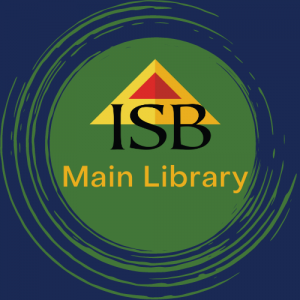Try New Things, Maybe?
Too many times, we look for reasons not to try something. Maybe we are worried we will fail, maybe we are concerned about what others will think, or basically, we just don’t want to stretch ourselves. If you’ve read this column recently, you will see that we’ve been recommending new books, new Digital Citizenship tools, new Tech Tools, and typically some AI Tools.
If I am honest, new technology is worrisome to me as generally, my job requires me to have some knowledge. When you add in things like recent AI, it really forces me to embrace the technology to see how students can use it and how we can use it to further improve the quality of education we offer at ISB. However, that is exactly what my finding has been that it is improving the education we can deliver.
I raise this as not only have I had to learn about this new technology, but I also purposefully then read the book recommended below, Stolen Focus, by Johanan Hari. One of the big takeaways is not just focusing on screen time or trying to do a tech cleanse. While forcing yourself to ‘detach’ from your tech for a few days is fine, it isn’t the real problem. The talks about and I would agree that as developers have made technology more focused on getting our attention, we have organically been losing our ability to focus. It is both of these things at work.
So what is the answer? One thing is just knowing this information and being aware. As you try new technology, pay attention to the elements that are grabbing your attention. The elements that you spend the most time one and literally how much time you are spending. Ultimately it is an exchange. You get a new tool that may or may not help you in return for some of your focus. Remember knowledge is power.
Bell’s Recommendation
 Stolen Focus – Johann Hari
Stolen Focus – Johann Hari
Many of you might have read this one or have heard of this, and in my opinion, you should read it! This book takes all of the things we have heard or read about focus and does the analysis we need. It delves into the history of how we ended up where we are with our seemingly generational attention issues and supports this theory with research. Hari, goes further to explain how it really isn’t our fault but the fine mixture of what we as humans pay attention too and the technologies that have been developed to exploit that over time. It might be a bit scary for some. However, it is best to know the details of any threat to our performance. Give this a read and stop by to chat with me I would love to hear you take on this book. It is easily read, and fast as Hari was a journalist first and the writing style makes things easy to understand and goes fairly quickly. A book for anyone who thinks their technology isn’t impacting their attention.
Tech Tools
I have been pretty obvious about my interest in AI Tools. This one is really having a daily impact on my work, so I thought I would share it. WiseOne is great for anyone as it is a Chrome Extension that allows you to click on it for any page you visit online. It then gives 3 main bullet points from the page followed by a summary. Then you can ask further questions and it will go out and search for more articles on this same topic. It helps speed up the research process. Give WiseOne.io a try.
Digital Citizenship
I have received some good feedback on the sharing of Microsoft’s Digital Citizenship tools in this post. The next in the series is Be Perceptive. In this segment, they site, “The American Library Association defines information literacy as a “set of skills needed to find, retrieve, analyze, and use information.” This supports the work I do when working with students at ISB trying to help them understand and recognize quality, reliable, and authoritative information.



